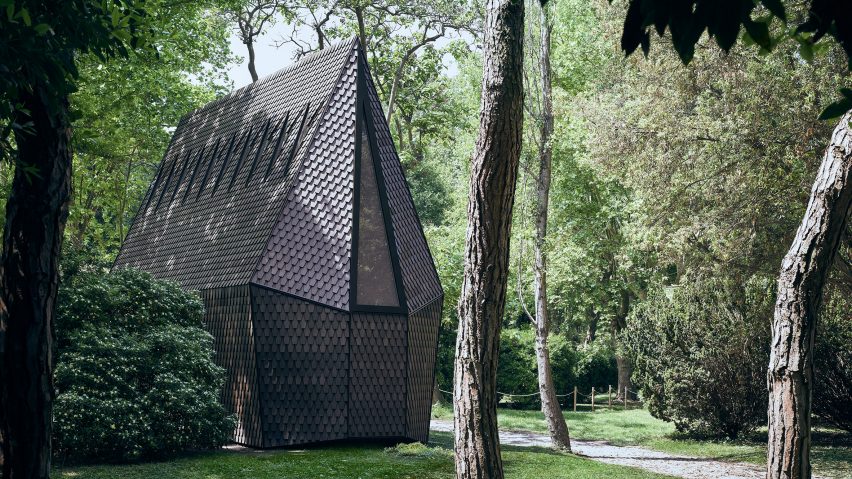
Vatican's Venice Biennale pavilion made using bespoke shingles by Alpi
Dezeen promotion: Alpi produced 9,000 custom shingles from environmentally and socially responsible wood for MAP Studio's pavilion as part of the Vatican City's Venice Biennale debut.
The Holy See commissioned architects Francesco Magnani and Traudy Pelzel of MAP Studio to design the pavilion, which is the cornerstone of it's entry to the 2018 Venice Architecture Biennale.
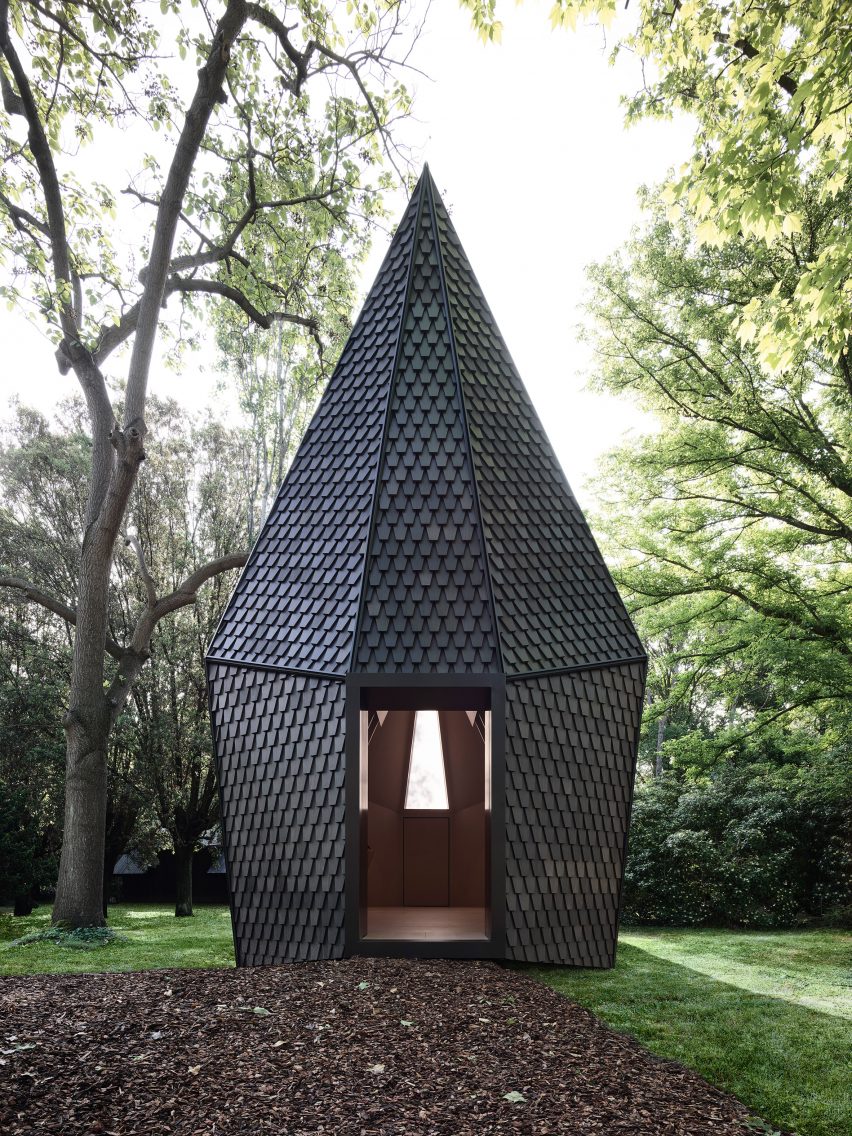
Set on the Venetian island of San Giorgio Maggiore, the Apslund Pavilion sits at the head of the meandering woodland path leading to ten chapels designed by architects including Norman Foster, Eduardo Souto de Moura and Teronobu Fujimori.
With its exaggerated gable form punctured by skylights and clad in dark grey shingles, the pavilion references Swedish architect Gunnar Asplund's Woodland Chapel, which he designed for Stockholm's UNESCO's World Heritage-designated Woodland Cemetery.
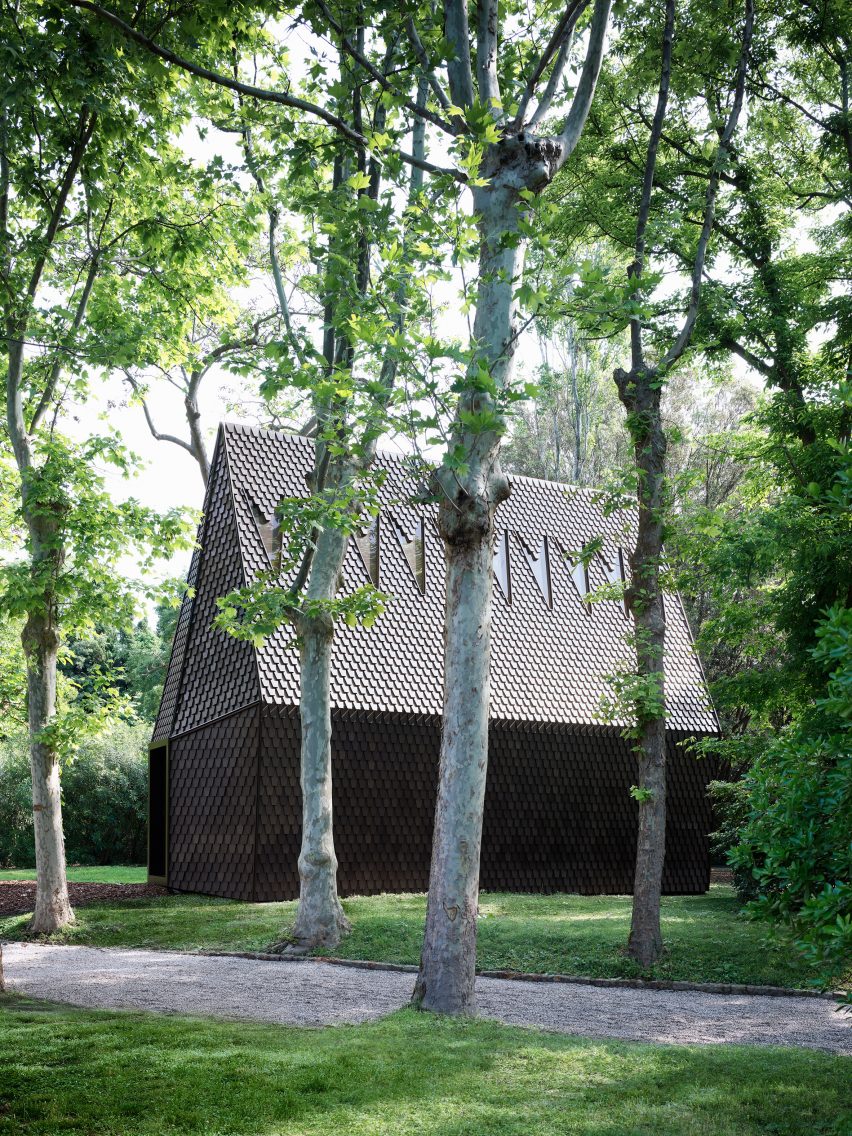
Inside is an exhibition of drawings, photographs and a model of Asplund's chapel design. One of Sweden's most important architects, his work in the 1920s is seen as the embodiment of Nordic Classism and he was a champion of the modernist movement in the country.
Venice-based MAP Studio sourced timber for the pavilion from Alpi, an Italian family-run business that specialises in sustainable reconstituted wood veneers.
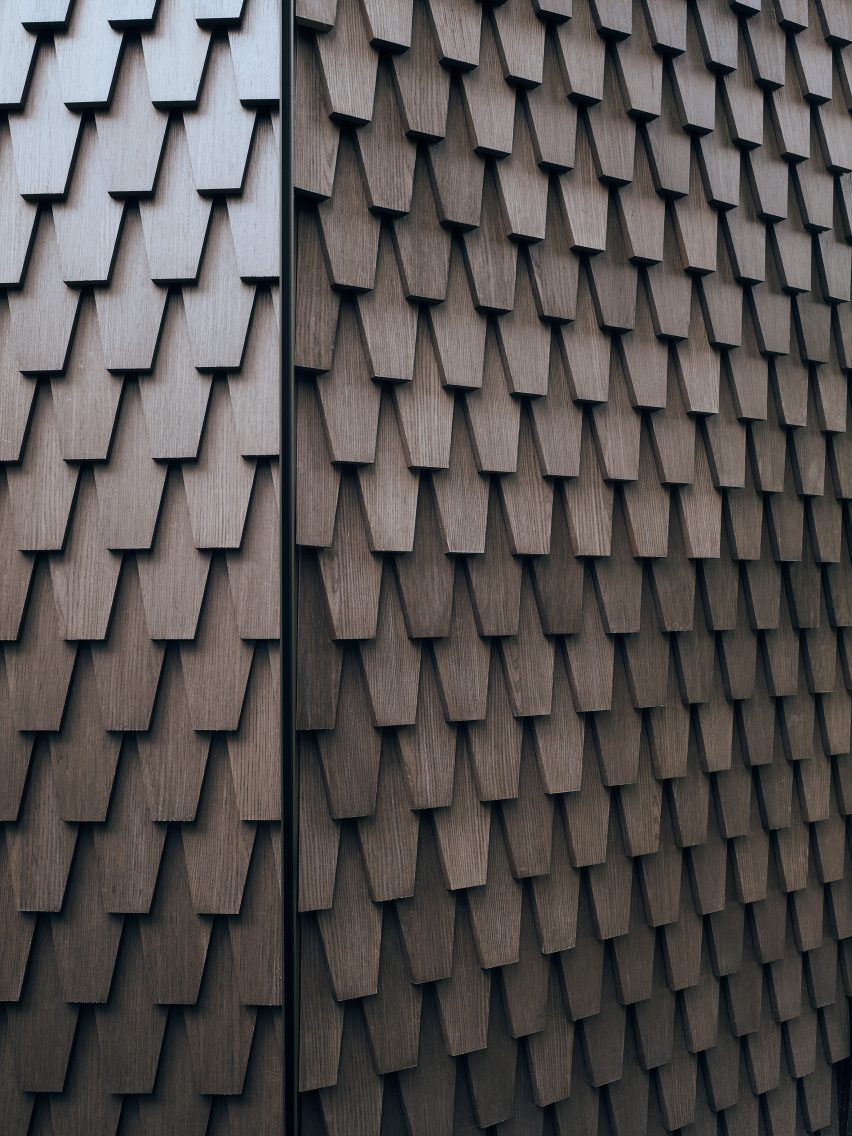
Alpi was founded in 1919 by cabinetmaker Pietro Alpi. When his son Valerio joined the company in the 1960s they branched out from bespoke furniture, applying the artisanal approach to experimenting with new materials including a pioneering reconstituted wood veneer.
Today the company is headed up by Pietro's grandson Vittorio Alpi, who works alongside art director Piero Lissoni.
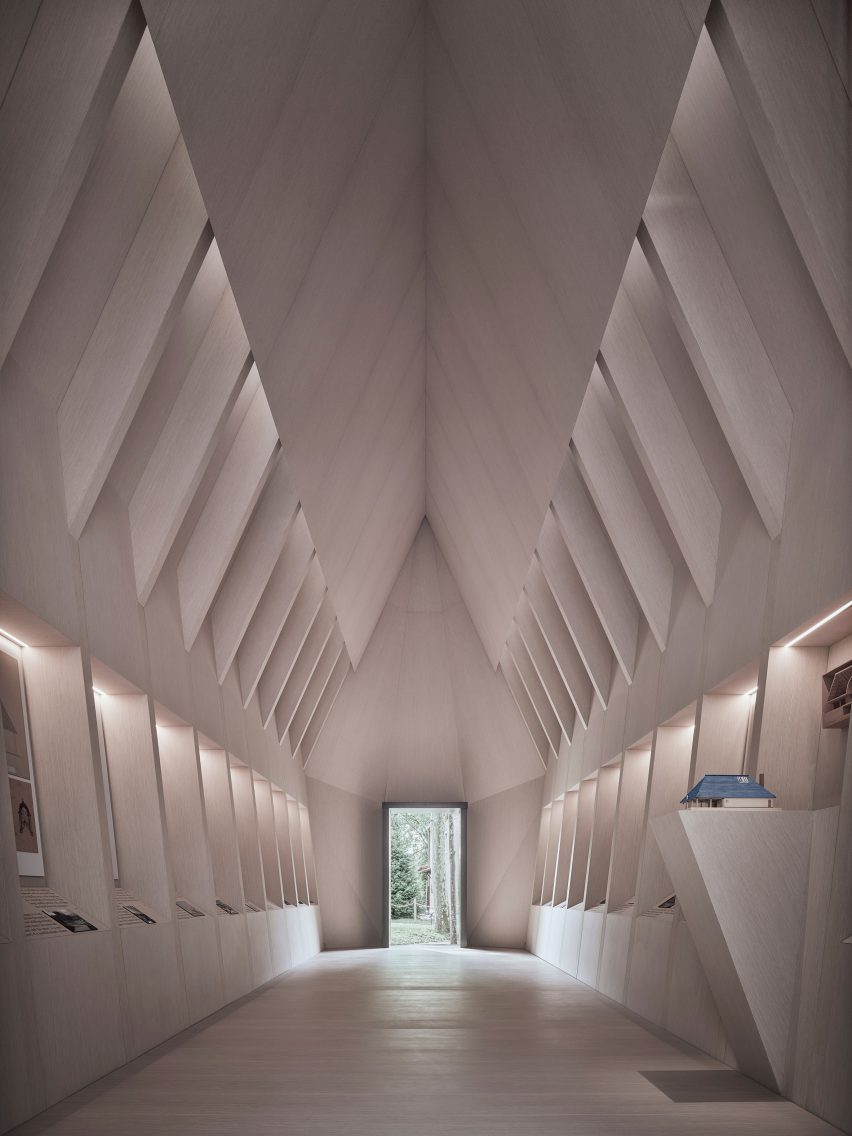
In order to ensure their product is both environmentally and socially responsible, Alpi oversees the entire process from log to finished product, managing half a million hectares of Poplar, Lime Wood and Ayous forests.
Chain-of-custody certification ensure that all the wood is legally and sustainably sourced, and entirely traceable. All the forests are managed with a focus on encouraging biodiversity, and local communities benefit economically from employment and improved infrastructure.
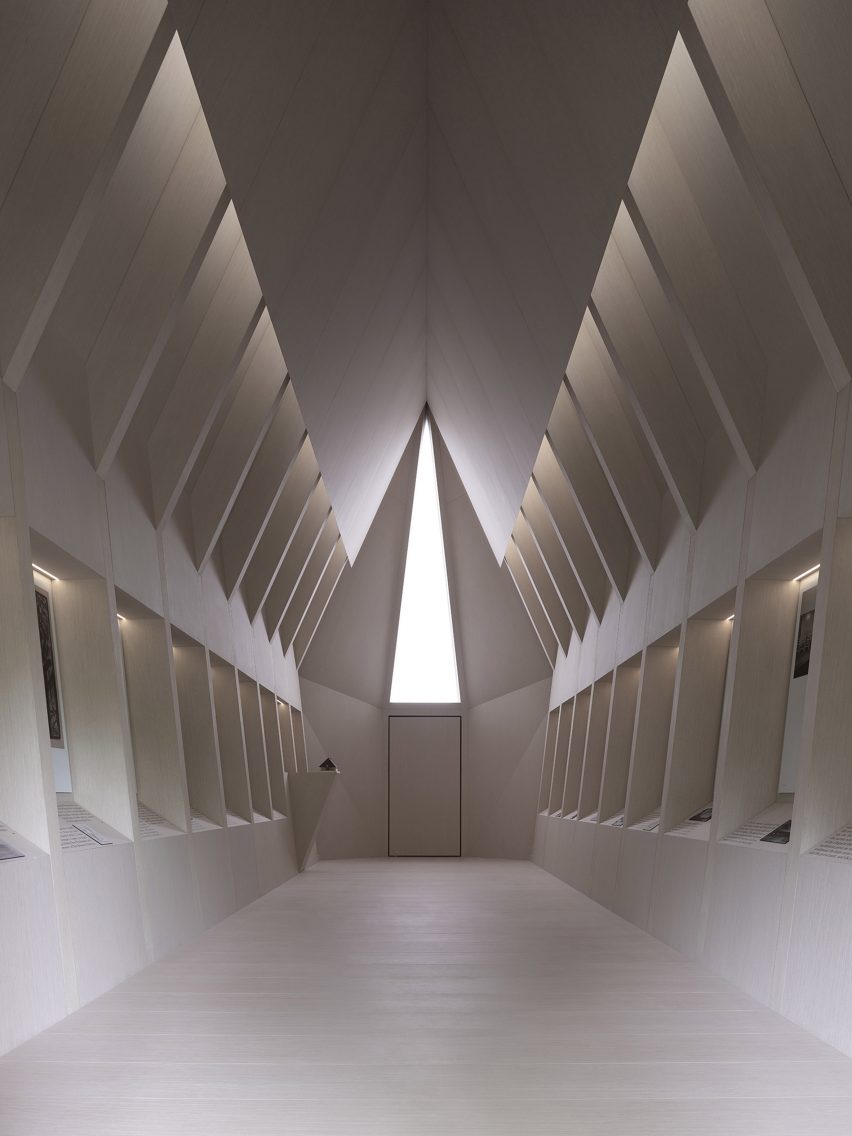
Alpi specialises in creating veneers that can reproduce the colour and grain of woods found in nature consistently over time, as well as producing products in hues that could never be found in nature.
For the Asplund Pavilion, Alpi produced an entirely bespoke product for MAP Studio, creating custom dark-grey shingles to clad the exterior of the pavilion. The interior is made with Xilo 2.0 Striped White, from a collection curated by Lissoni.
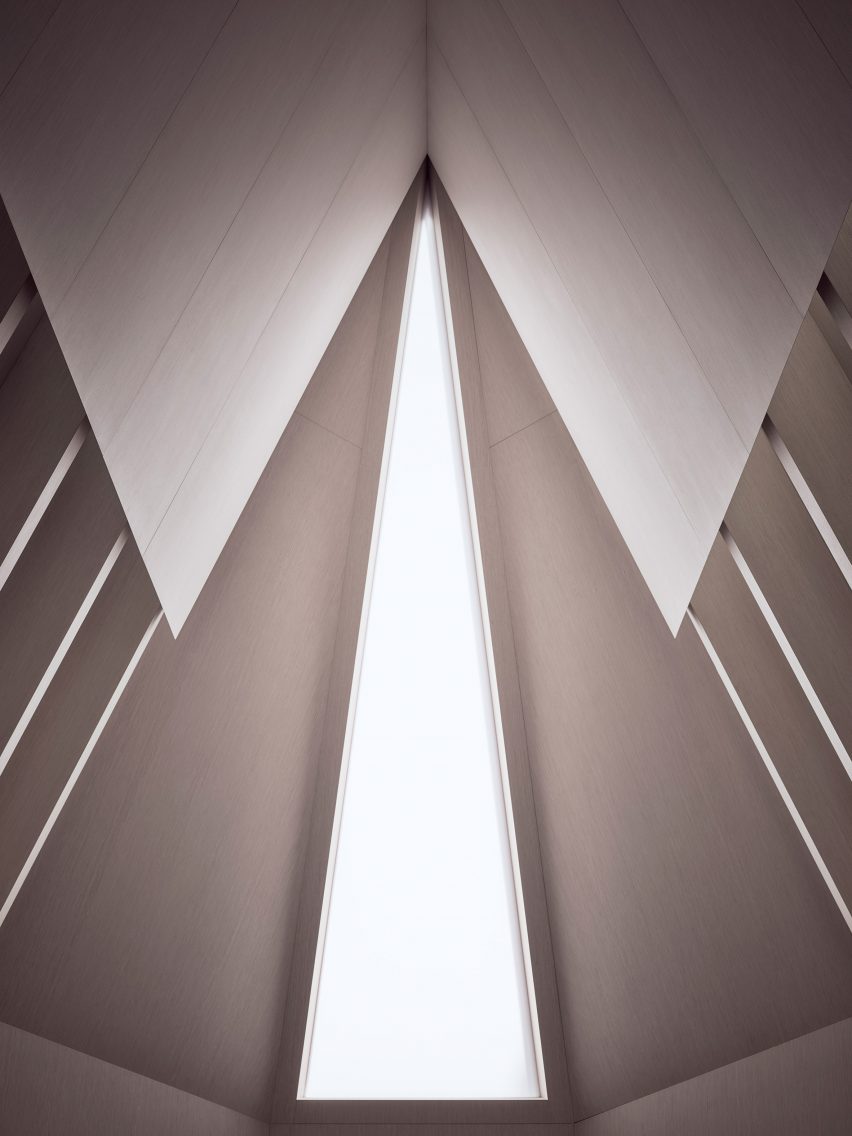
A total of 9,000 singles in Xilo 2.0 Planked Grey wood pattern were produced to exactly match the structural and aesthetic criteria set out by Magnani and Pelzel.
Visitors can experience the pavilion at the Venice Biennale until 25 November 2018.
Photography by Federico Cedrone.